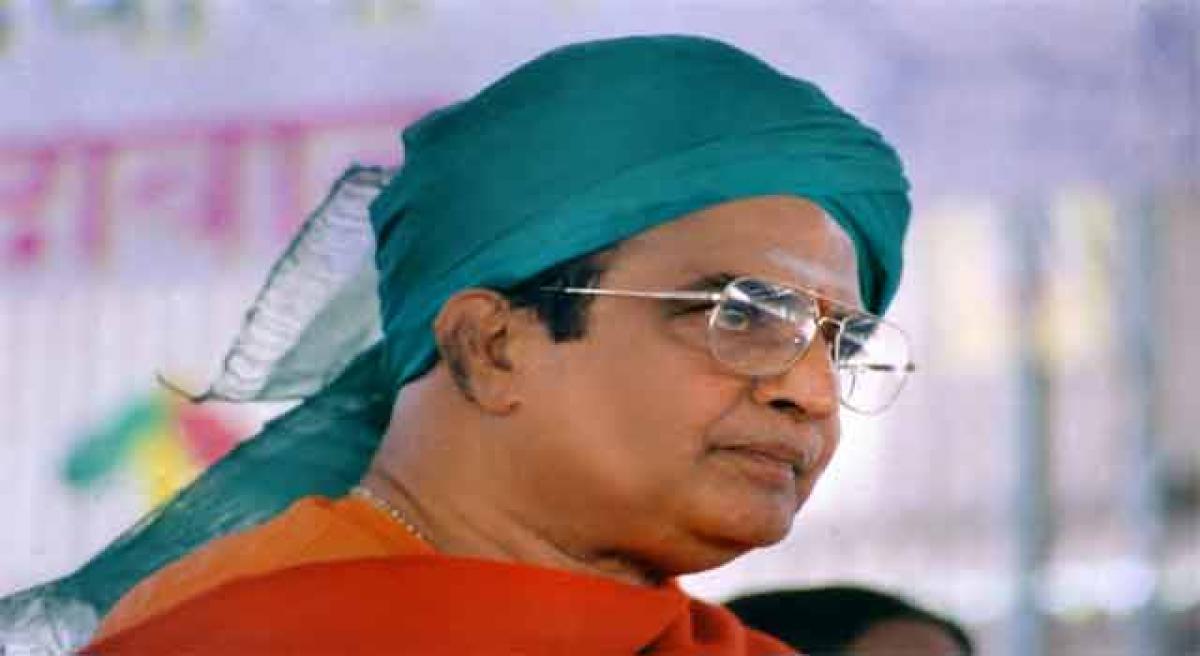Live
- PSBs can’t issue lookout circulars
- 41 candidates file nominations in Nellore district
- K’taka, Gujarat top States in clean energy transition
- Lord Rama Brahmothsavalu concluded on grand note
- Meta Unveils Ray-Ban Smart Glasses Update for WhatsApp Video Calls
- Barrelakka files nomination as Nagarkurnool candidate
- BRS chief KCR to Embark on Bus Yatra Ahead of Parliamentary Elections from today
- Congress still undecided
- All-time highest score by Narayana student in AP SSC results
- TS Inter results announced, here is the direct link
Just In

1983 in Andhra Pradesh, Sri N.T. Rama Rao was the new Chief Minister. I was Joint Secretary in the Chief Minister’s Office. A resolution had recently been passed by the State Legislative Assembly recommending the abolition of the state Legislative Council (LC). Every LC is constituted through a resolution of the Assembly subsequently approved by Parliament. The Ministry of Home Affairs, Government
1983 in Andhra Pradesh, Sri N.T. Rama Rao was the new Chief Minister. I was Joint Secretary in the Chief Minister’s Office. A resolution had recently been passed by the State Legislative Assembly recommending the abolition of the state Legislative Council (LC). Every LC is constituted through a resolution of the Assembly subsequently approved by Parliament. The Ministry of Home Affairs, Government of India, processes the matter. The same procedure is followed for its abolition.
The budget of the State Government had to be passed. The provisions of the Constitution of India lay down that if a State has two houses, the lower house first passes the budget and the upper house endorses it and returns it. What the upper house says about the budget is not as important as the need for it to consider and return it.
While the State Assembly had passed the resolution abolishing the LC the Government of India had not processed its approval yet, thus creating an anomalous situation with reference to the LC in Andhra Pradesh.
Not passing a year’s budget had never happened in any State until then. A suggestion was made to promulgate an ordinance, which also would have been an unprecedented step. The Constitutional validity of such a course of action was also not certain.
A financial emergency or the collapse of the constitutional machinery are the two crises no state government wants. At this point, I made a suggestion to NTR that the practical and constitutionally safe method would be to summon the LC (technically still in existence).
The opposition parties may embarrass him by boycotting his call, since his Telugu Desam Party (TDP) had no members in the LC yet. I pointed out, that the numbers of the Assembly were such that TDP could have nine members in the LC, and nine was the quorum of the LC. Surely, the nine TDP members, (who needed to be nominated yet, and would be members only for a short while until Parliament approved the proposal for abolition of the LC), would attend the LC.
When the budget was tabled in the LC, that house would be formally in order in terms of the requirement of quorum. Because of the lack of majority the budget would not be endorsed, but that was not necessary. The LC only needed to consider and return the budget to the Assembly. Thus was passed the Budget of Andhra Pradesh in 1983.
A possible emergency in the State was avoided by using the extant law and procedures although the solution may not have been politically palatable.

© 2024 Hyderabad Media House Limited/The Hans India. All rights reserved. Powered by hocalwire.com







